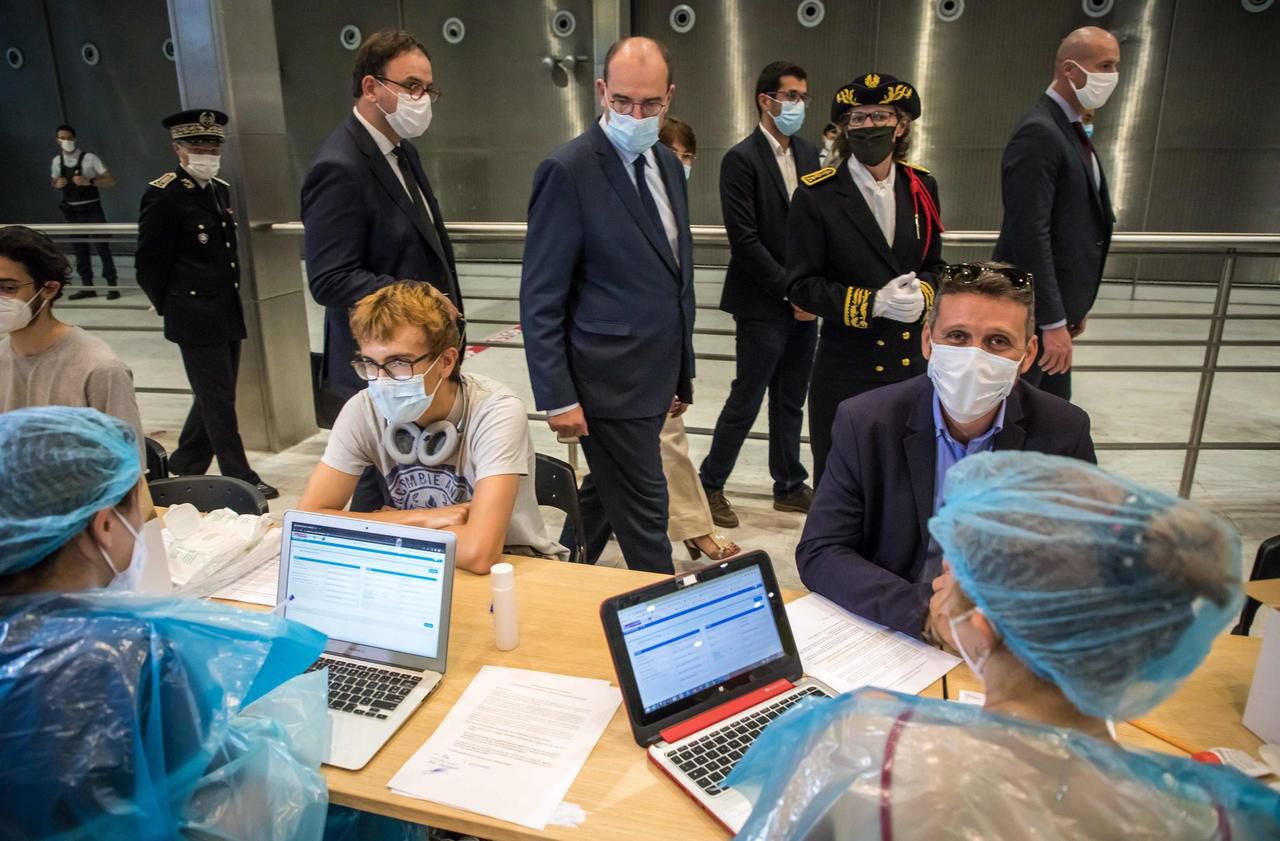Faced with an epidemic that does not affect all countries with the same intensity, France has decided to tighten the protection of its borders. The authorities want to avoid at all costs the arrival of an infected traveler, who would spread the coronavirus uncontrollably on the territory, while France is itself in the grip of an epidemic resurgence. The number of daily contaminations this week exceeded the 1000 mark.
On Friday, from Roissy-Charles de Gaulle airport, Prime Minister Jean Castex outlined certain health measures and confirmed others, already known, mainly targeting travelers from 16 countries considered to be at risk. Who can travel to France and with what precautions? In the heart of this very special summer, Le Parisien takes stock of these measures concerning arrivals on French territory.
Which countries are on the red list?
Until then, the countries considered "red" were all those that were not on the list of 22 states (in addition to members of the European Union) deemed to be sanitary safe. But on Friday, a new list was drawn up by the executive. There appear, in the words of the Prime Minister, 16 countries "where the viral circulation is particularly strong". They are scattered between Africa (Algeria, Madagascar and South Africa), the Arabian Peninsula (United Arab Emirates, Bahrain, Kuwait, Qatar, Oman and Israel) and America (Panama, United States, Brazil, Peru) . India is also concerned, as, closer to us, Turkey and Serbia.
Morocco was in a first list unveiled Friday, before Matignon backpedal. The situation in the country, which identifies several epidemic outbreaks that are difficult to control, nevertheless continues to focus attention and its passage on the red list "is under discussion", announced the entourage of the Prime Minister.
The borders between France and the 16 countries on this list have not reopened since the confinement. But Paris has decided to offer a little more flexibility for two types of travelers. Thus, “French citizens who reside in these countries, or citizens of these countries who have a stable residence in France” are now authorized to go to France, detailed Jean Castex on Friday. They will nevertheless have to undergo screening for Covid-19.
How are these tests carried out?
For travelers departing from these 16 countries who can, a virological test (also called PCR) must be performed within 72 hours of departure, and a negative result will be requested upon boarding. For the others, those who find themselves in countries where the samples are expected to be complicated or insecure, France gives them the possibility of being tested on their arrival in France, directly at an airport - or, soon, in a port, if they have traveled by sea.
These tests, optional until then, will become compulsory from Saturday August 1. Centers have already been set up since July 12 at Roissy and Orly airports. These diagnoses, which require a swab from the nose, are free. Travelers will have to wait for the result and for it to be negative, before moving freely on the territory.
In the event of a positive diagnosis, how does the quarantine go?
"People tested positively will be quarantined before resuming the course of a normal life on the territory", explains the government on its site. It is the prefect of the arrival area who can prescribe this isolation, if the test carried out at the airport or in the port proves positive or automatically if the passengers have refused to carry out a sample.
This fortnight can take place at the home of the infected or at risk person. She can choose another accommodation such as a hotel herself. However, the latter must be adapted to sanitary isolation, in which case the prefect may oppose it. The State representative can also prohibit, for 14 days, any exit from this place, but must then allow the traveler "access to essential goods and services", according to a decree of July 10 updated this Saturday.
And for travelers from other countries?
As a reminder, travel between Mayotte, Guyana and mainland France is prohibited due to the intensity of the epidemic in these areas, except in certain cases (overriding personal or family reason, urgent or professional health). These travelers must then present, upon boarding, a sworn certificate of the reason for this trip, as well as supporting documents and, for those over 11, a negative virological diagnosis, made less than 72 hours before the flight.
Newsletter - Most of the news
Every morning, the news seen by Le ParisienI'm registering
Your email address is collected by Le Parisien to enable you to receive our news and commercial offers. Learn more
Passengers arriving from countries other than those appearing on the “red” list, and whose borders are open with France (in particular nationals of the twenty or so countries validated by a decree of July 11, as well as those of the Union European Union and United Kingdom), are not required to perform a test. However, they can ask for a diagnosis before leaving, as a precaution, or try to perform a test on their arrival at the airport. They are then exposed, if the result is positive, to a placement in fourteen.
Can these measures change?
As with Morocco currently, the changing situation in certain countries could well lead France to remove or add countries to its red list. The Prime Minister also spoke on Friday of the situation in Catalonia, a Spanish region which "presents degraded health indices". He recommends that the French avoid this territory, and discussions are underway so that "the flows from Spain to France are as limited as possible", he stressed, suggesting that restrictions could be taken for Spanish passengers planning to travel to France.

